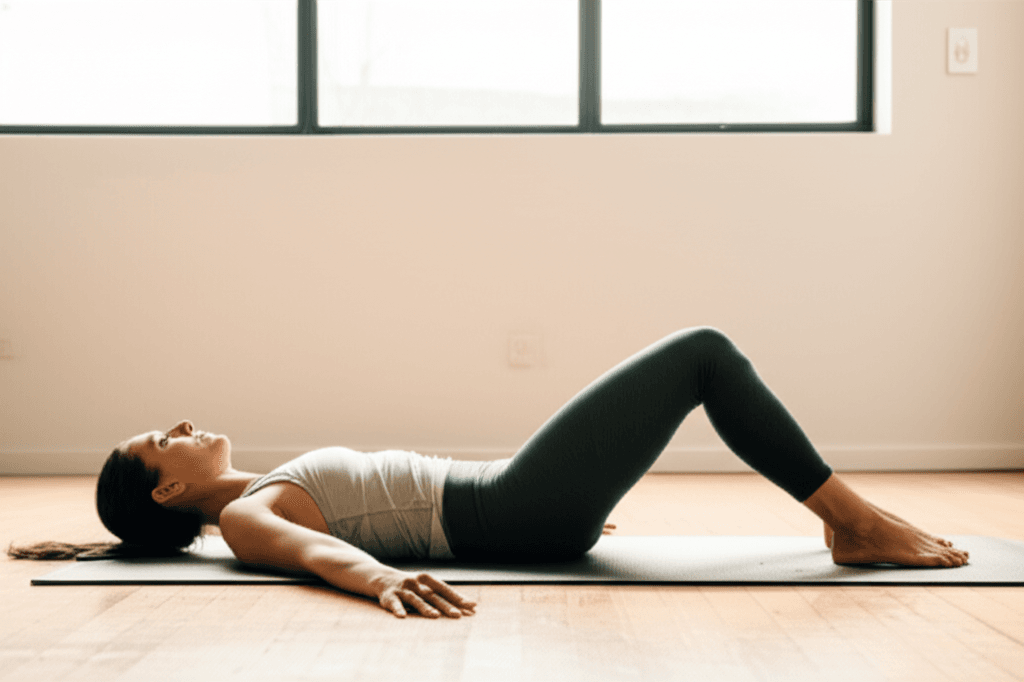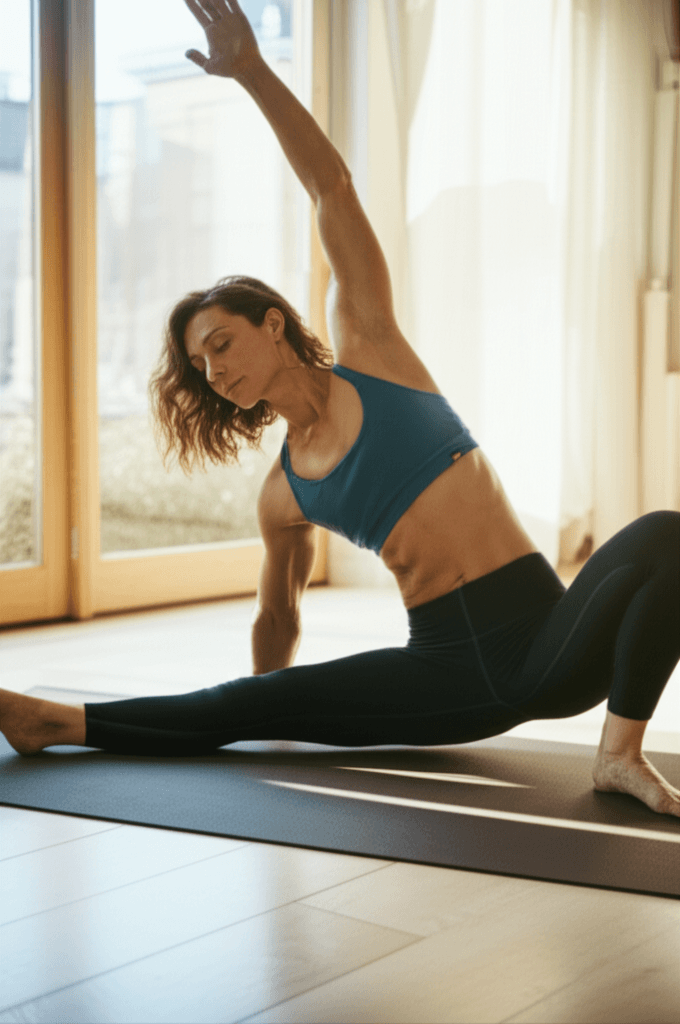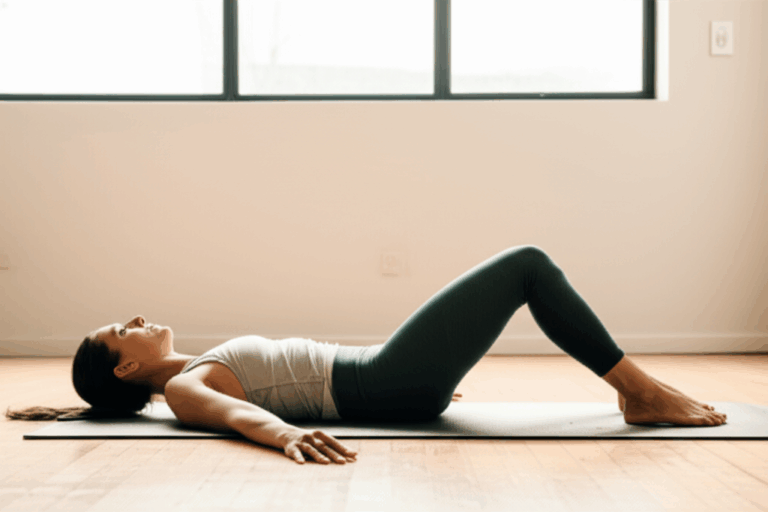In a world constantly pushing us toward external validation, the journey to genuinely like oneself can feel arduous. While physical activities are often lauded for their impact on appearance and health, some practices delve deeper, fostering a profound connection between mind and body. Pilates, celebrated for its physical conditioning, increasingly reveals its potential as a powerful tool for enhancing self-esteem and cultivating a more positive self-image. It’s not just about sculpted muscles; it’s about building a foundation for self-acceptance from within.

The Holistic Benefits of Pilates: More Than Just a Workout
Pilates, a low-impact exercise method developed by Joseph Pilates in the early 20th century, focuses on controlled movements, intentional breathing, and balance. It’s designed to improve stability, coordination, and strength throughout the entire body. While many initially gravitate to Pilates for its physical transformations, its true power often lies in its holistic approach, integrating mind and body for comprehensive well-being.
Physical Transformations: A Foundation for Confidence
The physical benefits of consistent Pilates practice are well-documented and contribute significantly to how one feels about their body:
- Increased Core Strength: Pilates is renowned for its emphasis on strengthening the core—the central muscles that support all movement. A strong core contributes to better functional mobility, stability, and balance.
- Improved Posture and Alignment: By strengthening spinal muscles and promoting full body alignment, Pilates can correct slouching posture, leading to a taller, more elongated appearance. Better posture not only enhances physical appearance but also contributes to a feeling of confidence.
- Enhanced Flexibility and Mobility: Pilates exercises are designed to stretch and strengthen the body simultaneously, improving flexibility and range of motion in joints.
- Balanced Muscular Strength and Tone: It promotes balanced muscular development across the body, leading to a lean, toned, and sculpted physique without excessive bulk. This focus on functionality can help individuals appreciate what their bodies can do rather than solely how they look.
- Injury Prevention and Rehabilitation: By improving muscle imbalances and strengthening supporting muscles, Pilates can help prevent injuries and aid in rehabilitation, particularly for issues like lower back pain.
Mental and Emotional Well-being: The Path to Self-Liking
Beyond the visible physical changes, Pilates offers a remarkable array of mental and emotional benefits that are intrinsically linked to self-perception and self-liking.
Cultivating Mindfulness and Body Awareness
One of the most significant contributions of Pilates to self-liking is its emphasis on the mind-body connection and mindfulness. The practice requires full attention to movements, breath, and form, fostering a deep connection between the mind and body. This heightened body awareness allows individuals to become more attuned to how their bodies feel, move, and function. This connection can transform the relationship one has with their body, shifting from criticism to appreciation.
Reducing Stress and Anxiety
Pilates is highly effective in stress reduction and promoting relaxation. The deep, controlled breathing techniques central to Pilates stimulate the parasympathetic nervous system, responsible for the body’s relaxation response, and help lower cortisol levels, the primary stress hormone. This meditative aspect provides a mental break from daily pressures, fostering a sense of inner peace and reducing symptoms of anxiety and depression.
Boosting Self-Esteem and Confidence
As individuals progress in their Pilates journey, they often experience a noticeable boost in self-esteem and confidence. The sense of accomplishment that comes from mastering new movements, improving technique, and witnessing physical improvements contributes to a greater sense of self-worth. Pilates provides a non-competitive environment where personal progress is celebrated, further enhancing confidence. Standing taller with improved posture also helps individuals feel more assured.
Enhancing Mood and Cognitive Function
Regular Pilates practice triggers the release of endorphins, the body’s natural mood-boosting hormones, which improve overall emotional state and can combat feelings of sadness or depression. The mental focus required during Pilates sessions, concentrating on balance, strength, and breathing, also stimulates the brain, enhancing mental clarity, concentration, coordination, and problem-solving skills.

The Journey to Self-Acceptance Through Pilates
Pilates offers a unique pathway to liking yourself more by fostering a deeper, more appreciative relationship with your body and mind. It shifts the focus from external ideals to internal strength and capability. By engaging in a practice that emphasizes mindful movement, self-care, and continuous improvement, individuals can:
- Develop Body Neutrality/Positivity: Pilates encourages connecting with the body in a healthy way, appreciating what it can do rather than solely focusing on its appearance. This can lead to a more positive body image and a greater sense of gratitude for one’s physical capabilities.
- Experience Mastery: Consistently engaging with challenging movements and feeling the body become stronger builds a sense of self-efficacy—the belief in one’s own ability to succeed.
- Prioritize Self-Care: Dedicating time to Pilates is an act of self-care, which reinforces a positive self-worth. It’s a healthy habit that can act as a buffer against depression and promote overall mental resilience.
- Connect with Community: Attending Pilates classes can also provide opportunities for social interaction and building connections, which is beneficial for mental health.
In conclusion, while the idea of “liking yourself” is complex and multifaceted, Pilates offers a powerful, embodied approach to nurturing self-acceptance. By simultaneously strengthening the body and calming the mind, it provides the tools to build physical and mental resilience, fostering a deeper sense of self-awareness, confidence, and ultimately, self-liking. It’s a journey of continuous discovery and appreciation for what your body and mind can achieve.







